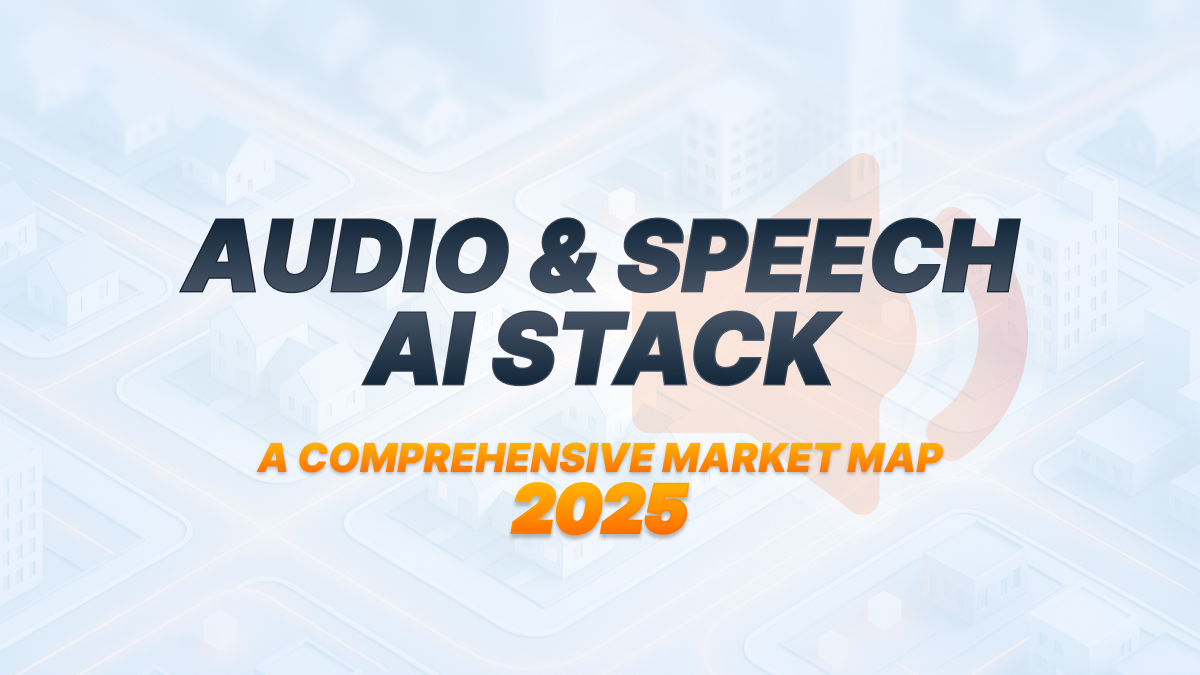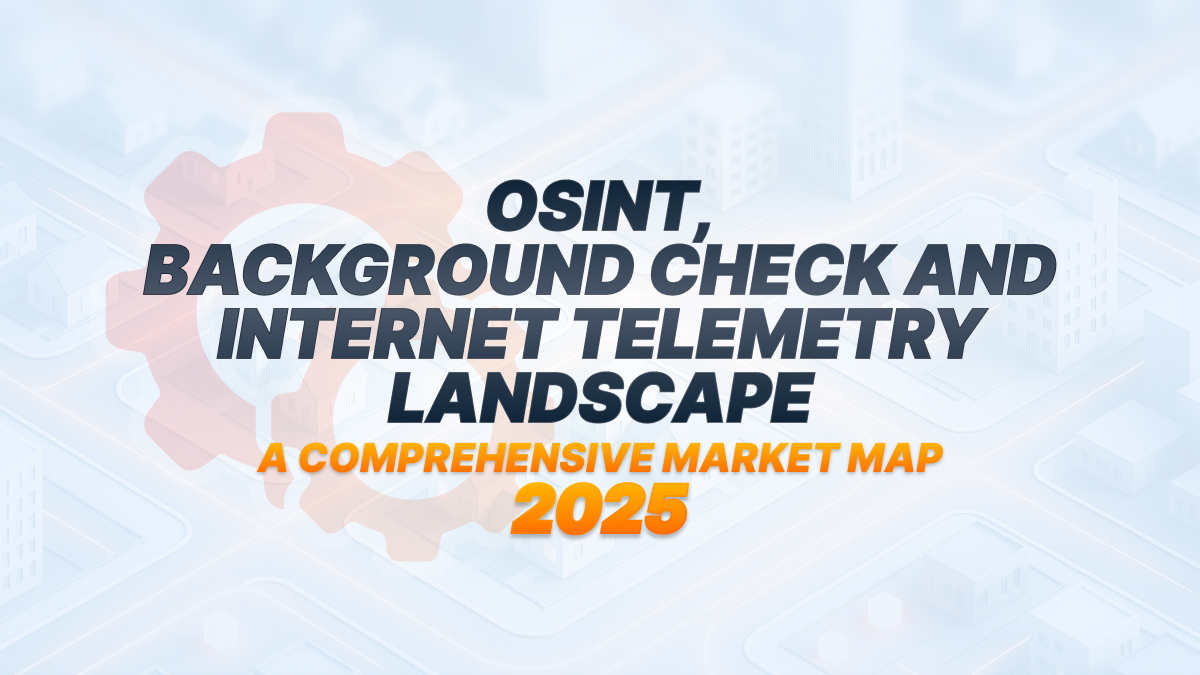What are the main differences between residential and datacenter proxies?
What are the benefits of using residential proxies over datacenter proxies?
These have become the most critical questions as businesses face increasingly sophisticated anti-bot measures in 2025.
The fundamental difference lies in authenticity: residential proxies use real homeowner IP addresses for maximum legitimacy, while datacenter proxies offer speed and cost-effectiveness but face declining success rates. The benefits of residential proxies—85-95% success rates, authentic user behavior simulation, and superior geographic targeting—increasingly outweigh their higher costs as detection systems become more sophisticated.
Your web scraping project just got blocked for the third time this week. You're questioning whether your datacenter proxy setup is still viable in 2025. You're not alone—with websites deploying AI-powered detection systems and success rates plummeting, choosing the right proxy infrastructure has become strategic, affecting everything from your project success to your bottom line.
Executive Summary
Key Takeaways:
- Main differences: Source (real homes vs server farms), success rates (85-95% vs 20-40%), speeds (10-100 Mbps vs 100-1000 Mbps), and costs ($2-15/GB vs $0.10-0.50/IP)
- Residential proxy benefits: Superior authenticity, better bypass capabilities, precise geographic targeting, and higher long-term ROI
- Business impact: Companies report 3x better ROI with residential proxies despite higher upfront investment
What Are the Main Differences Between Residential and Datacenter Proxies?
Direct Answer: The main differences are source, authenticity, performance, and cost. Residential proxies use real homeowner IPs (85-95% success rates, $2-15/GB) while datacenter proxies use server farm IPs (100-1000 Mbps speeds, $0.10-0.50/IP, but 20-40% success rates on protected sites).
The fundamental differences between residential and datacenter proxies stem from their IP address sources and resulting characteristics:
Source and Origin:
- Residential proxies use IP addresses assigned by Internet Service Providers (ISPs) to real homeowners and businesses
- Datacenter proxies use IP addresses registered to commercial data centers and server farms
Authenticity and Detection:
- Residential proxies appear as genuine user traffic because they ARE genuine user connections, making them virtually undetectable
- Datacenter proxies create obvious patterns that modern AI-powered detection systems easily identify and block
Performance Characteristics:
- Residential proxies offer 10-100 Mbps speeds with 100-300ms latency but achieve 85-95% success rates on protected sites
- Datacenter proxies provide 100-1000 Mbps speeds with 10-50ms latency but only 20-40% success rates on sites with anti-bot protection
Cost Structure:
- Residential proxies cost $2-15 per GB of traffic but reduce retry expenses through higher success rates
- Datacenter proxies cost $0.10-0.50 per IP monthly but incur hidden costs through failed requests and CAPTCHA solving
Geographic Targeting:
- Residential proxies offer precise city-level targeting with authentic local ISP footprints
- Datacenter proxies provide limited geographic accuracy restricted to data center locations
This fundamental difference in authenticity explains why residential proxies have become the preferred solution for modern web scraping, social media management, and competitive intelligence operations.
Main Differences Comparison Table
<table class="GeneratedTable">
<thead>
<tr>
<th>Difference Category</th>
<th>Residential Proxies</th>
<th>Datacenter Proxies</th>
</tr>
</thead>
<tbody>
<tr>
<td>IP Source</td>
<td>Real homeowner connections via ISPs</td>
<td>Commercial server farms and data centers</td>
</tr>
<tr>
<td>Success Rate (Protected Sites)</td>
<td>85–95% breakthrough rate</td>
<td>20–40% breakthrough rate</td>
</tr>
<tr>
<td>Speed Performance</td>
<td>10–100 Mbps bandwidth</td>
<td>100–1000 Mbps bandwidth</td>
</tr>
<tr>
<td>Cost Structure</td>
<td>$2–15 per GB traffic</td>
<td>$0.10–0.50 per IP monthly</td>
</tr>
<tr>
<td>Detection Risk</td>
<td>Very low (authentic traffic)</td>
<td>High (easily identified patterns)</td>
</tr>
<tr>
<td>Geographic Accuracy</td>
<td>City-level precision</td>
<td>Limited to data center locations</td>
</tr>
<tr>
<td>Latency</td>
<td>100–300ms average</td>
<td>10–50ms average</td>
</tr>
</tbody>
</table>
What Are Datacenter Proxies?
Key Takeaway: Datacenter proxies are IP addresses hosted in commercial server farms, offering speeds up to 1000 Mbps and costs as low as $0.10 per IP monthly, but with success rates dropping to 20-40% on protected sites.
Datacenter proxies are IP addresses hosted in commercial data centers, designed for high-speed, cost-effective web operations. These proxies route your traffic through server farms, offering consistent performance and reliability for bulk operations.
Technical Specifications:
- Speed: 100-1000 Mbps typical bandwidth
- Latency: 10-50ms average response time
- Availability: 99.9% uptime standard
- IP Pool Size: 10,000-100,000+ addresses per provider
- Cost: $0.10-$0.50 per IP/month
When Should You Use Datacenter Proxies?
Large-Scale Public Data Collection
Datacenter proxies excel when scraping publicly available datasets, government databases, or academic resources where speed matters more than stealth. Their high bandwidth makes them ideal for downloading large files or processing API calls in bulk.
Development and Testing Environments
Perfect for load testing applications, API development, and staging environments where bot detection isn't a concern. The consistent performance helps identify bottlenecks without authentication complications.
Basic SEO Rank Monitoring
Effective for tracking search engine rankings on less sophisticated platforms or for initial market research where advanced anti-bot detection isn't deployed.
Internal Business Operations
Ideal for accessing your own systems from different IP ranges, testing geo-targeting features, or conducting quality assurance across multiple locations.
Why Datacenter Proxies Are Struggling in 2025
Machine Learning Detection Systems
Modern websites use AI algorithms that easily identify datacenter IP ranges through traffic pattern analysis, browser fingerprinting, and behavioral signals. According to the Datacenter Proxy Services Market Report, the market has contracted by over 20% since 2022 due to these detection improvements.
Shared IP Reputation Issues
When multiple users share the same IP pool, one user's aggressive scraping can blacklist addresses for everyone. This creates unpredictable performance across different time periods.
Limited Geographic Authenticity
While datacenter proxies can be geographically distributed, they lack the authentic ISP footprint that sophisticated sites expect from real users.
What Are Residential Proxies?
Key Takeaway: Residential proxies use real homeowner IP addresses assigned by ISPs, achieving 85-95% success rates on protected sites through authentic user behavior simulation, though at 3-5x higher costs than datacenter alternatives.
Residential proxies use IP addresses assigned by Internet Service Providers (ISPs) to real homeowners. This creates an authentic digital fingerprint that appears as genuine user traffic to target websites, making them virtually undetectable by modern anti-bot systems.
Technical Specifications:
- Speed: 10-100 Mbps typical bandwidth (varies by ISP)
- Latency: 100-300ms average (depends on geographic routing)
- Success Rate: 85-95% on protected sites
- Geographic Coverage: 190+ countries with city-level targeting
- Cost: $2-$15 per GB of traffic
Why Residential Proxies Dominate Modern Web Scraping
Unmatched Authenticity
Residential IPs are indistinguishable from real users because they are real user connections. This authenticity bypasses even the most sophisticated detection systems deployed by major e-commerce and social media platforms.
Dynamic IP Rotation
Automatic IP switching every few requests prevents pattern detection and reduces the risk of rate limiting. This rotation mimics natural user behavior where people access sites from different locations throughout the day.
Superior Bypass Capabilities
Successfully access geo-restricted content, social media platforms, and heavily protected e-commerce sites that have completely blocked datacenter IP ranges.
How Should You Use Residential Proxies?
E-commerce Competitive Intelligence
Monitor competitor pricing, inventory levels, and market positioning across multiple regions without triggering anti-bot measures. Essential for dynamic pricing strategies and market analysis.
Social Media Management at Scale
Manage multiple accounts across platforms while maintaining authentic engagement patterns and avoiding platform restrictions. Particularly crucial for agencies handling numerous client accounts.
Ad Verification and Fraud Prevention
Verify ad placements and prevent click fraud by viewing campaigns as real users would across different geographic locations. Ensures your advertising spend reaches genuine audiences.
Market Research and Consumer Insights
Gather authentic consumer data, review sentiment, and competitive intelligence without detection. Access region-specific content and pricing that would otherwise be geo-blocked.
High-Value Purchase Automation
Successfully purchase limited-release items like sneakers, tickets, or collectibles by bypassing purchase limits and geographic restrictions that target obvious automation.
What Are the Benefits of Using Residential Proxies Over Datacenter Proxies?
Key Benefits: Residential proxies provide superior success rates (85-95% vs 20-40%), authentic user behavior simulation, better geographic targeting, lower detection risk, and higher long-term ROI despite higher upfront costs.
The benefits of residential proxies over datacenter proxies have become increasingly significant as websites deploy more sophisticated anti-bot measures:
Superior Success Rates and Reliability
Breakthrough Protected Site Barriers
Residential proxies achieve 85-95% success rates on heavily protected e-commerce sites, social media platforms, and streaming services. In contrast, datacenter proxies struggle with 20-40% success rates on the same targets, according to 2024 proxy performance studies.
Reduced Operational Overhead
Higher success rates mean fewer retry requests, less CAPTCHA solving, and reduced development time spent on evasion techniques. This translates to lower total cost of ownership despite higher base pricing.
Authentic User Behavior Simulation
Undetectable Traffic Patterns
Residential proxies route traffic through real user connections, creating authentic browsing patterns that match genuine user behavior. This authenticity bypasses even machine learning-based detection systems.
Natural Geographic Distribution
Real residential IPs provide authentic geographic footprints that match local user demographics, language preferences, and browsing behaviors that sophisticated sites expect.
Enhanced Geographic Targeting Capabilities
City-Level Precision
Access location-specific content, pricing, and search results with authentic local IP addresses. This precision is essential for market research, competitive analysis, and accessing geo-restricted content.
Regional Compliance
Navigate regional restrictions and content variations that require authentic local presence, particularly important for international business operations.
Long-Term Sustainability
Future-Proof Technology
As detection systems become more sophisticated, residential proxies maintain their effectiveness while datacenter proxy success rates continue declining. The 90% effectiveness drop for datacenter proxies since 2020 demonstrates this trend.
Business Continuity
Reliable data access ensures consistent business operations without unexpected disruptions from IP blocks or detection systems.
ROI Advantages Despite Higher Costs
True Cost Analysis
While residential proxies cost $2-15/GB compared to datacenter proxies at $0.10-0.50/IP, the total cost per successful request often favors residential proxies when including retry costs, development time, and business impact of failed operations.
Revenue Protection
For businesses dependent on web data collection, residential proxies protect revenue streams by ensuring consistent access to critical business intelligence and competitive data.
These benefits explain why enterprise clients report 3x better ROI with residential proxies despite higher upfront costs, and why the residential proxy market is growing 40% year-over-year while datacenter proxy usage declines.
Performance Analysis: Speed vs Success Rate Trade-offs
True Cost Analysis: Beyond Subscription Fees
The real cost of proxy infrastructure extends beyond monthly subscription fees. Consider these factors:
Datacenter Proxy Hidden Costs:
- Base cost: $0.10-$0.50 per IP/month
- Retry requests due to blocks: +200-400% traffic overhead
- CAPTCHA solving services: $1-3 per 1000 solves
- Development time for detection workarounds: 10-20 hours/month
- True cost per successful request: $0.01-$0.05
Residential Proxy Comprehensive Costs:
- Base cost: $2-$15 per GB of traffic
- Minimal retry overhead due to high success rates
- Reduced development maintenance
- True cost per successful request: $0.02-$0.06
Performance Metrics Comparison
<table class="GeneratedTable">
<thead>
<tr>
<th>Metric</th>
<th>Datacenter Proxies</th>
<th>Residential Proxies</th>
</tr>
</thead>
<tbody>
<tr>
<td>Bandwidth</td>
<td>100–1000 Mbps</td>
<td>10–100 Mbps</td>
</tr>
<tr>
<td>Latency</td>
<td>10–50ms</td>
<td>100–300ms</td>
</tr>
<tr>
<td>Success Rate (Protected Sites)</td>
<td>20–40%</td>
<td>85–95%</td>
</tr>
<tr>
<td>Geographic Accuracy</td>
<td>Limited to data center locations</td>
<td>Precise city-level targeting</td>
</tr>
<tr>
<td>Detection Risk</td>
<td>High (easily identified)</td>
<td>Very Low (authentic traffic)</td>
</tr>
<tr>
<td>Concurrent Connections</td>
<td>100–1000+ per IP</td>
<td>5–20 per IP</td>
</tr>
<tr>
<td>Session Persistence</td>
<td>Excellent</td>
<td>Good (with sticky sessions)</td>
</tr>
</tbody>
</table>
Which Proxy Type Should You Choose? Decision Framework
Choose Datacenter Proxies When:
Speed Is Your Primary Concern
If you're processing large volumes of public data where detection isn't an issue, datacenter proxies' superior bandwidth (up to 1000 Mbps) can significantly reduce processing time.
Budget Constraints Are Critical
For startups or proof-of-concept projects with limited budgets, datacenter proxies provide an entry point to proxy technology at $0.10-$0.50 per IP monthly.
Accessing Unprotected Content
Government databases, academic resources, and basic business directories typically don't employ sophisticated bot detection, making datacenter proxies sufficient.
Development and Testing
Internal applications, load testing, and staging environments benefit from datacenter proxies' consistent performance without needing to simulate real user behavior.
Choose Residential Proxies When:
Accessing Protected or Premium Content
E-commerce sites, social media platforms, and subscription services deploy advanced detection systems that only authentic residential IPs can bypass reliably.
Success Rate Determines ROI
When failed requests cost time, money, or business opportunities, residential proxies' 85-95% success rates justify the higher investment.
Geographic Targeting Is Essential
Accessing region-specific content, pricing, or search results requires authentic local IP addresses that residential proxies provide at city-level precision.
Long-term Sustainable Operations
For ongoing business-critical scraping operations, residential proxies provide the reliability and consistency needed for sustainable data collection strategies.
For Different Business Personas: Tailored Recommendations
Small Business Owners: Budget-Conscious Proxy Selection
Quick Decision: Start with residential proxies for critical data (competitor prices, market research) and datacenter proxies for non-protected content (public directories, basic SEO monitoring).
Recommended Approach:
- Allocate 70% of proxy budget to residential proxies for protected sites
- Use datacenter proxies for public data and internal testing
- Expected monthly cost: $200-500 for comprehensive coverage
- Focus on ROI measurement: track successful requests vs. costs
Enterprise Teams: Scalable Proxy Infrastructure
Enterprise Strategy: Implement hybrid infrastructure with residential proxies for customer-facing data collection and datacenter proxies for internal operations and testing environments.
Infrastructure Components:
- Dedicated residential proxy pools for each business unit
- Shared datacenter proxy clusters for development teams
- Automated failover systems switching between proxy types
- Expected investment: $2,000-10,000+ monthly depending on scale
Marketing Agencies: Client Project Considerations
Agency Best Practice: Use residential proxies for all client-facing data collection to ensure consistent results and avoid detection that could impact client relationships.
Client Management Strategy:
- Separate proxy pools for each client to prevent cross-contamination
- Residential proxies for social media monitoring and competitor analysis
- Transparent cost allocation showing proxy expenses in project budgets
- White-label reporting that doesn't expose proxy usage to end clients
Developers: Technical Implementation Guide
Developer Focus: Prioritize API integration capabilities, session management features, and geographic rotation options when selecting proxy providers.
Technical Requirements:
- RESTful API for automated proxy management
- Session persistence for multi-step processes
- Geographic targeting at city/region level
- Rotation algorithms that mimic natural user behavior
Current Market Trends: The Great Migration to Residential Proxies
Industry Data: Datacenter Proxy Market Decline
According to the Datacenter Proxy Services Market Analysis, the datacenter proxy market has experienced significant contraction, with enterprise adoption declining over 20% since 2022. This trend reflects the increasing sophistication of anti-bot technologies deployed by major platforms.
Key Market Indicators:
- 90% decline in datacenter proxy effectiveness for search engine scraping since 2020
- 40% year-over-year growth in residential proxy adoption
- Major proxy providers shifting resources from datacenter to residential infrastructure
- Enterprise clients reporting 3x better ROI with residential proxies despite higher costs
Technology Evolution: AI-Powered Detection
Machine Learning Detection Systems
Modern websites employ behavioral analysis, device fingerprinting, and traffic pattern recognition that make datacenter proxy detection trivial. These systems learn and adapt, making traditional evasion techniques obsolete.
Geographic Intelligence
Platforms now cross-reference IP geolocation with user behavior, language preferences, and browsing patterns to identify inauthentic traffic with unprecedented accuracy.
Real-Time Blacklisting
Automated systems can identify and block entire datacenter IP ranges within minutes of detecting suspicious activity, affecting all users sharing those addresses.
Implementation Roadmap: Making the Transition
Phase 1: Assessment and Planning (Week 1)
Audit Current Proxy Performance
- Measure success rates across different target sites
- Calculate true cost per successful request including retries
- Identify which operations require highest authenticity
- Document current pain points and blocking frequency
Research Residential Proxy Providers
- Compare network size and geographic coverage
- Evaluate API integration capabilities
- Test customer support responsiveness
- Review pricing models and scaling options
Phase 2: Pilot Testing (Weeks 2-3)
Run Parallel Operations
- Test residential proxies on highest-priority targets
- Maintain datacenter proxies for comparison
- Measure performance improvements and cost impacts
- Document integration challenges and solutions
Optimize Configuration
- Fine-tune rotation intervals and geographic targeting
- Implement session management for multi-step processes
- Configure failover systems between proxy types
- Test monitoring and alerting systems
Phase 3: Gradual Migration (Weeks 4-6)
Prioritize Critical Operations
- Migrate highest-value scraping operations first
- Maintain hybrid approach for non-critical tasks
- Monitor ROI and adjust strategy based on results
- Train team members on new proxy management tools
Scale Successful Configurations
- Expand residential proxy usage to additional use cases
- Optimize costs by right-sizing proxy allocations
- Implement automated scaling based on demand patterns
- Document best practices for future reference
Phase 4: Optimization and Monitoring (Ongoing)
Continuous Performance Monitoring
- Track success rates, costs, and business impact metrics
- Monitor for new detection methods and adjust accordingly
- Regular review of proxy provider performance
- Update strategies based on market changes and new technologies
Common Implementation Challenges and Solutions
Challenge: Higher Latency Impact on Performance
Problem: Residential proxies' 100-300ms latency vs. datacenter proxies' 10-50ms can slow operations.
Solution: Implement geographic optimization by selecting residential IPs closer to target servers. Use concurrent processing to parallel requests rather than sequential processing. Consider hybrid approach where speed-critical operations use datacenter proxies for public data.
Challenge: Complex Session Management
Problem: Multi-step processes (login, browse, purchase) require consistent IP addresses but residential proxies rotate frequently.
Solution: Implement sticky sessions that maintain the same IP for related requests while rotating between different operations. Use session pools that intelligently manage IP assignments based on workflow requirements.
Challenge: Cost Management and Budget Control
Problem: Residential proxy costs can escalate quickly without proper monitoring and controls.
Solution: Implement usage monitoring with automated alerts at 80% of budget thresholds. Use traffic optimization techniques like request deduplication and intelligent caching. Set up cost allocation across different projects or business units for accountability.
Challenge: Integration Complexity
Problem: Switching from datacenter to residential proxies may require significant code changes.
Solution: Start with API-based solutions that provide consistent interfaces regardless of proxy type. Use proxy management services that handle rotation and failover automatically. Implement gradual migration with feature flags to switch between proxy types without code deployment.
Regional Considerations: Global Proxy Performance
North American Market
Residential Proxy Advantages:
North American residential IP pools offer excellent coverage for accessing US-based e-commerce sites, social media platforms, and streaming services. Success rates typically exceed 90% for major platforms like Amazon, Facebook, and Google services.
Performance Characteristics:
- Average speeds: 25-75 Mbps depending on ISP
- Best geographic coverage in major metropolitan areas
- Premium pricing due to high demand: $8-15 per GB
European Market
GDPR Compliance Considerations:
European residential proxies must comply with stricter data protection regulations, making ethically-sourced providers essential. This compliance often results in higher costs but provides legal protection for business operations.
Regional Performance:
- Excellent for accessing geo-restricted European content
- Strong coverage in Western Europe, limited in Eastern regions
- Moderate pricing: $5-10 per GB for premium providers
Asia-Pacific Region
Speed vs. Authenticity Trade-offs:
In markets like Japan, South Korea, and Australia, businesses often prioritize speed over absolute authenticity due to less sophisticated detection systems on local platforms.
Market Characteristics:
- Emerging market with growing proxy demand
- Limited residential IP availability in some regions
- Competitive pricing: $3-8 per GB
Measuring Success: Key Performance Indicators
Essential Metrics to Track
Success Rate by Target Site
- Percentage of successful requests vs. total attempts
- Track separately for each major target website
- Monitor trends over time to identify degradation
True Cost Per Successful Request
- Include base proxy costs, retry expenses, and development time
- Compare across different proxy types and providers
- Calculate ROI based on business value of collected data
Business Impact Metrics
- Revenue generated from proxy-enabled data collection
- Competitive advantages gained from market intelligence
- Cost savings from automated vs. manual data gathering
Monitoring Tools and Dashboards
Real-Time Performance Tracking
- Success rate monitoring with immediate alerts for degradation
- Cost tracking with budget threshold notifications
- Geographic performance analysis for optimization opportunities
Competitive Benchmarking
- Compare your proxy performance against industry standards
- Monitor competitor data collection capabilities
- Track market share of different proxy types in your industry
Final Recommendations: Your Next Steps
The proxy landscape has fundamentally shifted toward authenticity and reliability over pure speed and cost. Based on current market trends and technological developments, here are our strategic recommendations:
For Most Organizations: Residential-First Strategy
Immediate Action: Allocate 70-80% of your proxy budget to residential proxies for business-critical operations. The higher success rates and reduced operational overhead justify the investment for most commercial use cases.
Implementation Timeline: Begin with high-value targets (competitor monitoring, market research) and gradually expand residential proxy usage based on demonstrated ROI.
For Budget-Conscious Projects: Hybrid Approach
Strategic Balance: Use residential proxies for protected targets and datacenter proxies for public data collection. This approach maximizes success rates while controlling costs.
Budget Allocation: Start with $200-500 monthly budget: 60% residential proxies for critical operations, 40% datacenter proxies for volume operations.
For Enterprise Operations: Premium Residential Investment
Comprehensive Solution: Invest in enterprise-grade residential proxy services with dedicated support, custom integration assistance, and guaranteed SLA commitments.
Expected Investment: $2,000-10,000+ monthly for comprehensive enterprise coverage with dedicated account management and priority support.
The companies that make this transition early will maintain competitive advantages as anti-bot measures continue to evolve and become more sophisticated. The question isn't whether to adopt residential proxies, but how quickly you can implement them effectively.

I am the co-founder & CEO of Massive. In addition to working on startups, I am a musician, athlete, mentor, event host, and volunteer.
Customer reviews
Frequently Asked Question
What is the difference between residential and datacenter proxies?
+
Quick Answer: Residential proxies use real homeowner IP addresses assigned by ISPs, achieving 85-95% success rates on protected sites, while datacenter proxies use server farm IPs offering faster speeds (100-1000 Mbps) but with higher detection rates (20-40% success on protected sites).
Residential proxies route your traffic through genuine residential internet connections, making your requests appear as regular user activity. Datacenter proxies route traffic through commercial server farms, providing faster speeds but creating easily identifiable traffic patterns that modern anti-bot systems detect and block.
What are the main differences between residential and datacenter proxies in terms of performance?
+
The main performance differences center on speed versus success rates. Datacenter proxies deliver superior raw performance with 100-1000 Mbps bandwidth and 10-50ms latency, making them ideal for high-volume operations. However, residential proxies achieve dramatically better success rates (85-95% vs 20-40%) on protected sites, often making them faster for completing actual tasks despite lower technical speeds.
What are the specific benefits of using residential proxies for e-commerce monitoring?
+
Residential proxies provide three critical benefits for e-commerce monitoring: (1) Authentic user simulation that bypasses sophisticated anti-bot systems deployed by major retailers, (2) Accurate geographic targeting for location-specific pricing and inventory data, and (3) Consistent data access without interruptions from IP blocks that could disrupt competitive intelligence operations.
Can I start with datacenter proxies and switch to residential later?
+
Yes, but early investment in residential proxies often provides better long-term ROI. Many websites that block datacenter proxies today implement permanent blacklists, meaning those IP ranges may never regain access. Starting with residential proxies for critical operations while using datacenter proxies for testing and public data collection provides the best of both approaches.
How do I calculate the true ROI of residential vs datacenter proxies?
+
Calculate cost per successful request, including retry expenses and development time. For example: if datacenter proxies cost $0.30/IP with 30% success rate, your true cost is $1.00 per successful request. If residential proxies cost $5/GB with 90% success rate and you get 1000 requests per GB, your cost is $0.0055 per successful request—making residential proxies more cost-effective despite higher base pricing.
How do residential proxies benefit social media management compared to datacenter proxies?
+
Residential proxies offer essential benefits for social media management: Account protection through authentic traffic patterns that prevent platform suspensions, authentic engagement simulation that maintains natural user behavior patterns, and geographic authenticity for location-based content and audience targeting. Social media platforms actively detect and penalize datacenter proxy usage, making residential proxies essential for sustainable social media operations.
Are residential proxies legal and compliant?
+
Yes, residential proxies are legal when sourced ethically with user consent and used in compliance with applicable laws and website terms of service. Choose providers that transparently explain their IP sourcing methods and provide compliance documentation. Avoid providers that cannot verify ethical sourcing practices.
What's the minimum budget needed for effective residential proxy usage?
+
Most businesses see meaningful value starting at $200-500 monthly, depending on data volume and target complexity. This budget typically covers 10-50 GB of residential proxy traffic, sufficient for comprehensive competitor monitoring, market research, and moderate-scale web scraping operations.
How do I monitor if my proxies are being detected?
+
Track success rates, HTTP response codes, and CAPTCHA frequency across different target sites. Implement monitoring for unusual response times, increased 403/429 errors, and unexpected redirects to verification pages. Set up alerts when success rates drop below 80% for immediate investigation.
Which proxy type is better for social media management?
+
Residential proxies are essential for social media management due to platforms' sophisticated bot detection systems. Social media sites actively monitor for datacenter IPs and will suspend accounts that show inauthentic traffic patterns. The investment in residential proxies protects valuable social media accounts from suspension.











